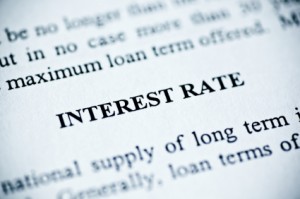 Getting the best rate on your mortgage loan can mean a difference of thousands of dollars over the life of your loan, so it’s worth your time to show that lender that you’re a good risk and deserve the lowest rate.
Getting the best rate on your mortgage loan can mean a difference of thousands of dollars over the life of your loan, so it’s worth your time to show that lender that you’re a good risk and deserve the lowest rate.
In general, there’s a 1 ½% difference between the highest and lowest interest rates offered. And on a loan of just $100,000 that 1 ½% means a difference of $26,888 over a 30 year loan.
The primary criteria in determining the rate you’ll pay is, of course, your credit score.
Since the mortgage crisis hit, lenders don’t even want to talk to you unless you have a score of 620 – and then you’ll qualify at the highest rate. In order to get the best rates, you’ll need a score of 740 or more.
So your first step when thinking of a home purchase should be to get a copy of your credit report, with scores, and read it carefully. Industry experts admit that over 70% of all credit reports contain errors – and those errors could lower your scores and cost you money.
Be on the lookout for anything that doesn’t belong on your report, or is incorrect. Check to see that your name is spelled correctly and that every previous address really is one of yours. Make sure your spouse’s name is listed correctly. And of course, check to see that every account listed really is yours. Verify that the account numbers are accurate, as well as the names of the creditors.
This is not just a good credit practice. By monitoring your credit report regularly, you’ll catch telltale signs of identity theft, and be able to nip it in the bud.
If you do find an error, file a dispute and get it corrected. This is an easy process to begin now that all three credit bureaus have online systems for error reporting. But it does take time, so don’t wait until you’re ready to apply for a loan.
Once you know your credit score, work to improve it and do nothing to lower it. Try not to apply for any new credit in the months or year prior to making application for a home loan. Pay down credit card balances and/or transfer balances so that no account shows more than 30% usage. Put off buying a new car until after your home loan is in place. And of course, be sure you pay every bill on time and never overdraw your checking account.
Another way to secure the best mortgage rate is to make a large down payment. The more you have invested in your purchase, the less risk you pose, so banks are willing to give you a better rate. Plus, if you’ve made a down payment of 20% or more, you’ll be exempt from paying for mortgage insurance – and that’s another large savings.
Author: Mike Clover
CreditScoreQuick.com your resource for credit reports, credit cards, loans and ground breaking credit news….




